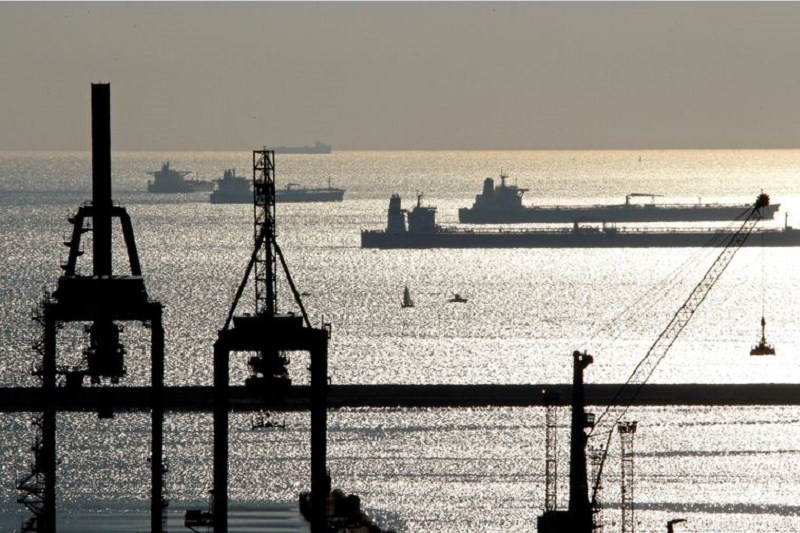(Bloomberg) -- The market for moving oil across the world’s oceans is currently so bad that owners of the industry’s biggest supertankers are actually subsidizing the delivery of cargoes.
Strange to think, then, that shares of two of the market’s biggest pureplay owners -- Euronav (NYSE:EURN) NV and Frontline (NYSE:FRO) Ltd. -- have been steadily rallying since early February. It’s because the oil tanker sector is emerging as a hot coronavirus vaccine play.
The coronavirus has ravaged both global oil demand and supply, rendering the fees that owners charge for individual cargo deliveries little short of disastrous. But industry executives, shipbrokers and analysts all say there’s reason to be bullish: the more oil is kept off the market now, the harder the snapback will be as vaccination programs help to revive global oil demand -- and with it the flow of cargoes.
“We are probably never going to experience a demand increase similar to what we are likely to see over the next nine months for tankers,” said Eirik Haavaldsen, a shipping analyst at Pareto Securities AS in Oslo. “Six months down the road, we will have higher OPEC+ production because the world is going to consume a lot more oil as vaccines take effect and economies recover.”
Coming Back
It’s an optimism that already filtered into the oil market. Banks including Goldman Sachs Group Inc (NYSE:GS)., Citigroup Inc (NYSE:C). and JPMorgan Chase & Co. (NYSE:JPM) have all hiked their crude-price forecasts over the past few months in anticipation of stellar summer demand as vaccination programs take effect.
The International Energy Agency says world oil consumption will be back approaching 100 million barrels a day by the end of the year, about 6% higher than the first quarter. In a report Wednesday, the agency said OPEC+ could quickly bring supply back if oil markets tighten.
For now though, rates for the industry’s biggest tankers are in the doldrums. OPEC and its allies surprised markets earlier this month, by keeping existing output cuts for at least a month longer than the oil market had been anticipating.
Oil tankers competing to move 2-million-barrel cargoes from the Middle East to China have lost an average of about $2,800 a day in the so-called on-the-spot charter market since the start of February, data from the Baltic Exchange data show.
That compares with earnings of about $250,000 a day a year ago, when a downturn in the oil market had oil traders storing fuels at sea on every type of vessel that they could find.
Other parts of the shipping market are already strengthening. The Baltic Dry Index, a gauge of ships hauling commodities like coal and iron ore is at a five-month high, while container shipping rates have also soared amid a spate of global inventory restocking.
There are signs that tanker owners are waiting it out for better times too. Normally, such catastrophic earnings would reshape the supply of vessels, with ships either being scrapped on the beaches of India, Bangladesh and Pakistan, or sitting idle in bays and harbors off the coasts of countries like Indonesia and Malaysia.
So far, there’s little sign of either happening -- despite ships having their highest scrap values since late 2014.
But there are also relatively few new vessels being built either, further reducing the incentive for some owners to succumb to weak rates now.
The outlook for vessel supply is the most bullish since 2003, according to Frode Morkedal, an analyst at Clarksons Platou AS, a unit of the world’s biggest shipbroker. And the prospects for demand look positive too.
“Shipping is a leveraged bet on the world economy and commodity prices,” analysts including Morkedal said. “The tanker market is expected to quickly recover.”
(Updates with IEA comments in sixth paragraph.)
©2021 Bloomberg L.P.
